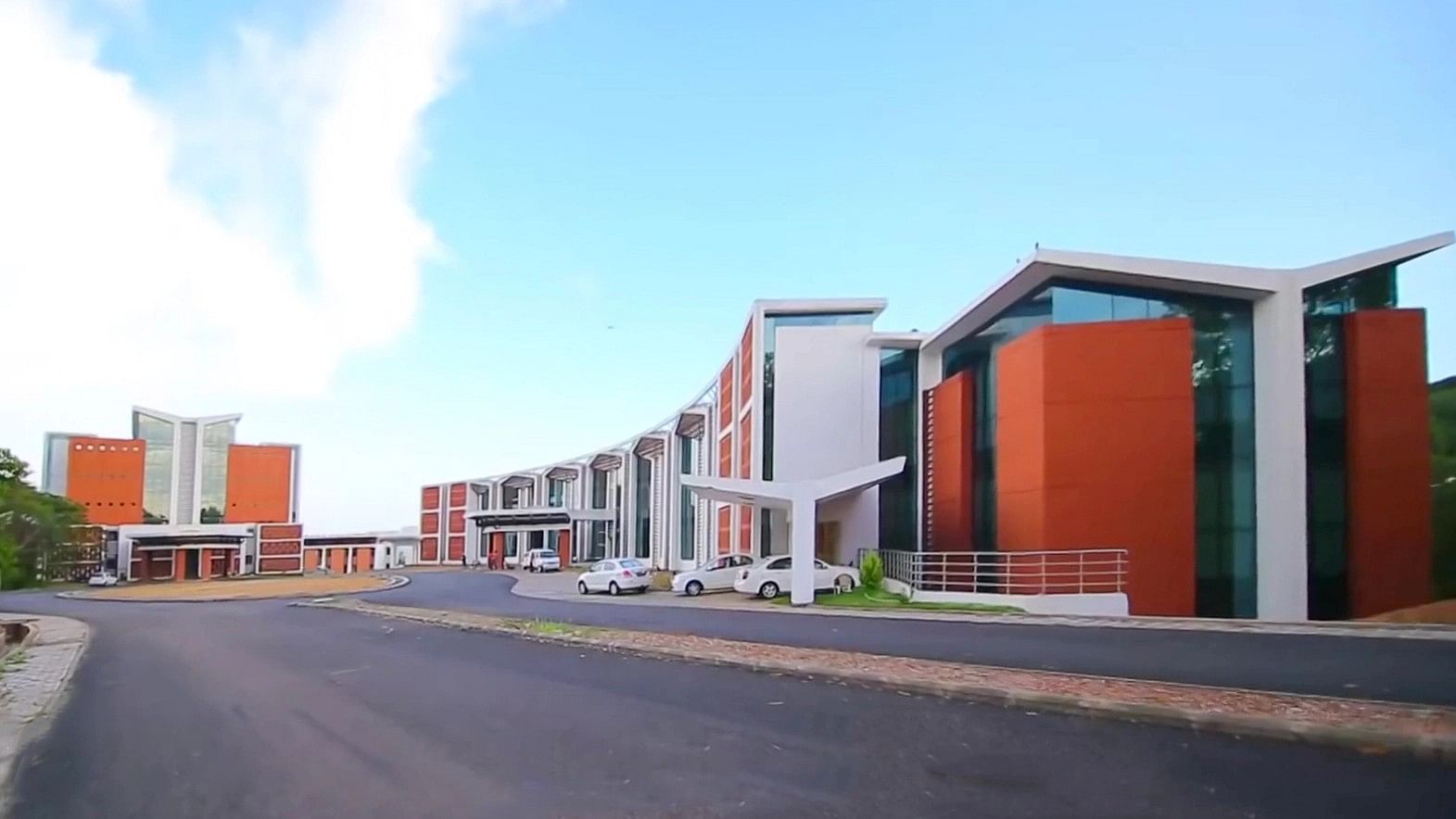
The Indian Institute of Space Science and Technology (IIST), Thiruvananthapuram.
Credit: Wikimedia Commons
Thiruvananthapuram: Despite the nation's significant achievements in space missions, the Indian Institute of Space Science and Technology (IIST) in Thiruvananthapuram, a prestigious institution for training space scientists, has witnessed a decline in its ranking and remains without a full-time director for over two years.
The IIST, a deemed university and autonomous institute under the Department of Space, has been without a director since July 2021 following the retirement of V K Dadhwal. Unnikrishnan Nair, the director of Vikram Sarabhai Space Centre (VSSC), is currently holding the additional charge of director.
The institute's ranking in the National Institutional Ranking Framework (NIRF) dropped to 48 in 2023. While the ranking had risen from 28 in 2017 to 23 in 2018, it has steadily declined in subsequent years.
Sources at IIST attribute the drop in ranking to various factors, including changes in NIRF's ranking criteria. The increasing number of institutions within the ranking criteria has significantly grown over the years. Although IIST is a deemed university, it is considered in the engineering category during the ranking process, as it does not meet the university criteria for NIRF ranking due to insufficient students. Moreover, IIST focuses on niche and unique areas that fall outside NIRF's ranking criteria. These factors have contributed to the decline in IIST's NIRF ranking.
"Even as the fall in ranking has not affected the institute, IIST has taken up the matter with the authorities concerned," said an institute official who did not want to be quoted.
Many within IIST believe that the absence of a full-time director is affecting the institute's decision-making processes. "The VSSC director, holding the charge of IIST director, is already occupied with duties at VSSC and major space missions. IIST requires a full-time director, especially for expanding its activities. Despite inviting applications for the post of IIST director several times, the recruitment has not taken place," said a faculty member.
"Despite these challenges, IIST continues to maintain its reputation thanks to its pool of around 100 expert faculties, high-end research facilities, and brilliant students," the faculty member added.
Established in 2007 with former President APJ Abdul Kalam as its first chancellor, IIST is India's only space university. The institute has contributed around 1,300 scientists and engineers to the Indian Space Research Organisation, with many involved in missions such as Chandrayan-3 and Aditya-L1. Currently, IIST has around 1,000 students at the undergraduate, graduate, doctoral, and post-doctoral levels.
While IIST officials declined formal comments on the matter, Unnikrishnan was not available for further remarks.